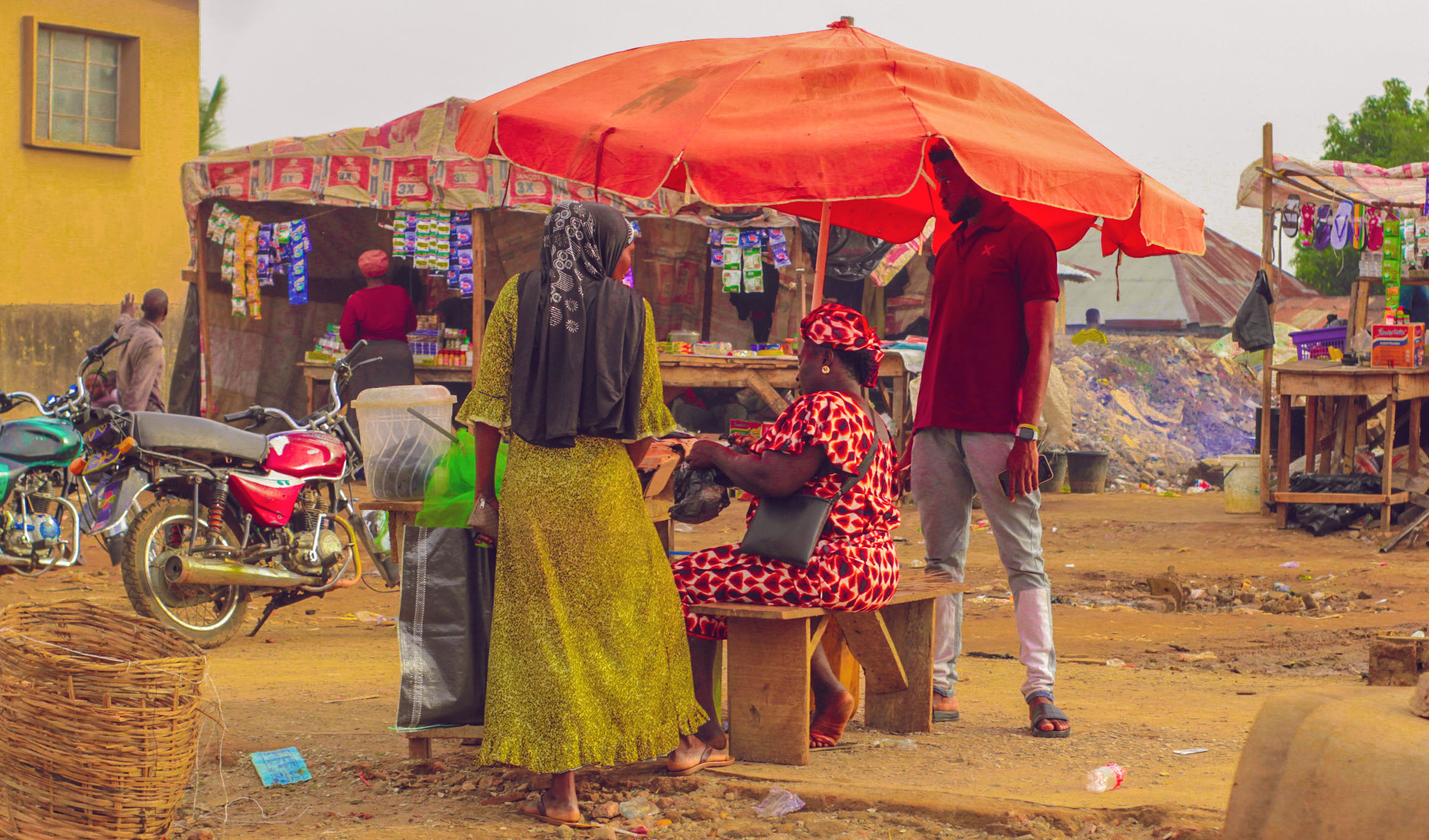On a sunny afternoon, Temmy Mope, a first-year student at Federal University Oye-Ekiti, ventured out from home to purchase essential groceries to sustain herself for the upcoming five days.
Amidst the bustling Oye market, Temmy found herself negotiating with the seller over the price of pepper when a man in his late sixties suddenly gripped her left hand and menacingly insisted on taking her to the Oloye of Oye’s palace.
Looking bewildered and frightened, Temmy inquired about what she had done. “You didn’t cover your hair, these students are not serious. You think we are joking,” the old man, holding Temmy’s hand tightly in his right hand and wielding a long koboko (a cane made from animal skin) in his left hand, said.
“After several pleas by the market women and other people around, I was released and given a black nylon to cover my hair up. I felt so embarrassed that I started crying because I have never experienced this before,” Temmy said.
Like Temmy, many female students from FUOYE face harassment and, in some instances, physical assault within markets located in Oye Local Government of Ekiti State. This, many of the girls consider repressive and suppressive.
However, the tradition of covering hair is not limited to Ekiti but is prevalent across various regions of Nigeria. Oja Oba, situated in Ilorin, the capital city of Kwara State in North Central Nigeria, is renowned as one of the area’s largest and most prominent markets, where covering one’s hair is strictly observed and enforced.
According to Sarah Ibiyemi, a resident of Ilorin, it’s customary that women should not visit Oja Oba without wearing a head veil unless they are prepared to face repercussions from those who enforce the tradition of covering their hair.
“You will just notice that you have been beaten by koboko while facing your business inside the market”, Sarah said.
She mentioned that this practice likely stems from the strong religious and Islamic influence in Ilorin, the capital of Kwara State. Consequently, the principles and actions of the community are closely aligned with their religious beliefs.
Must they cover the hair?
The estimated religiousbreakdown in Nigeria is approximately 50 % Muslim, 40 % Christian, and the remaining 10 % follow various indigenous religions. In the context of culture and religion, it is customary for women, as exemplified in the case of Ilorin, to cover their heads regardless of their location.
From a health perspective, it’s deemed unwise to leave one’s hair uncovered, as noted by Oselu Onilelowo, a youth leader in Ekiti. He explained that one of the reasons people wear scarves is to safeguard the food items sold in the market. He also mentioned that previous generations regarded covering the hair as a matter of hygiene.
A local chief, who chose to remain anonymous, emphasised the importance of spiritual awareness among maidens and women in general. He explained that the marketplace serves as a meeting point for spirits and other supernatural entities, sometimes interacting with humans. According to him, their ancestors viewed this practice as a means for females to safeguard themselves from potential harm inflicted by malevolent beings.
A matter of personal choice
Experts contend that while women should cover their hair, punishing and harassing girls should not be endorsed.
Okunola Funmilayo, a content creator and women’s advocate, emphasised that women should be free to cover their hair willingly rather than being compelled to do so. “Every place has its own rules, regulations, customs, and traditions. If they inform you that this is how things are done in a particular place, it is advisable to abide by them because these rules are established for specific reasons.”
She added, “A woman covering her hair in the market is not absurd, but embarrassing a woman because she didn’t cover her hair is what we shouldn’t condone, especially if she doesn’t know beforehand.“
Nigerian culture embodies our collective identity and is on the brink of erosion due to Westernization. It urgently demands all our efforts to safeguard it; otherwise, we risk losing our shared cultural identity, which is what many believe.
A conflict analyst in gender development, Ajibola Bamgbose, told Prime Progress that cultures should be respected and preserved when they are not harmful.
“I believe they are attempting to preserve their culture, but the way they go about it is very harmful. When a timid girl enters the market, she may cry due to the harassment and threats she faces. The approach is problematic. Furthermore, they do not apply these practices to men, claiming that men are superior and intend to protect their women.”
She noted that cultures covering the hair can only be sustained in remote and rural areas where they can quickly apprehend the local ‘law’ violators.
“Additionally, Oye in Ekiti is a small and secluded town. Attempting such practices in Idumota Market or larger markets would be unfeasible. How many girls would they arrest? While civilisation has advanced, there’s no need to penalise women for not choosing to cover their hair. It should be personal choice, not compulsion,” Ajibola said.
Temmy Mope, a first-year student at Federal University Oye-Ekiti, faced harassment and an attempted escort to the Oloye of Oye's palace for not covering her hair while shopping in the Oye market, highlighting a broader issue of harassment against female students in the area. This incident sheds light on the tradition in various Nigerian regions, including Ilorin's Oja Oba market, where women are expected to cover their hair due to religious and cultural norms.
Although the custom of covering hair is rooted in religious, health, and spiritual beliefs, experts argue that enforcing it through punishment is inappropriate. Cultural norms, while essential to identity, should not lead to harmful practices, especially as seen in smaller towns like Oye where enforcement can be rigorous. There is a consensus that such practices should be a matter of personal choice rather than compulsory enforcement.






